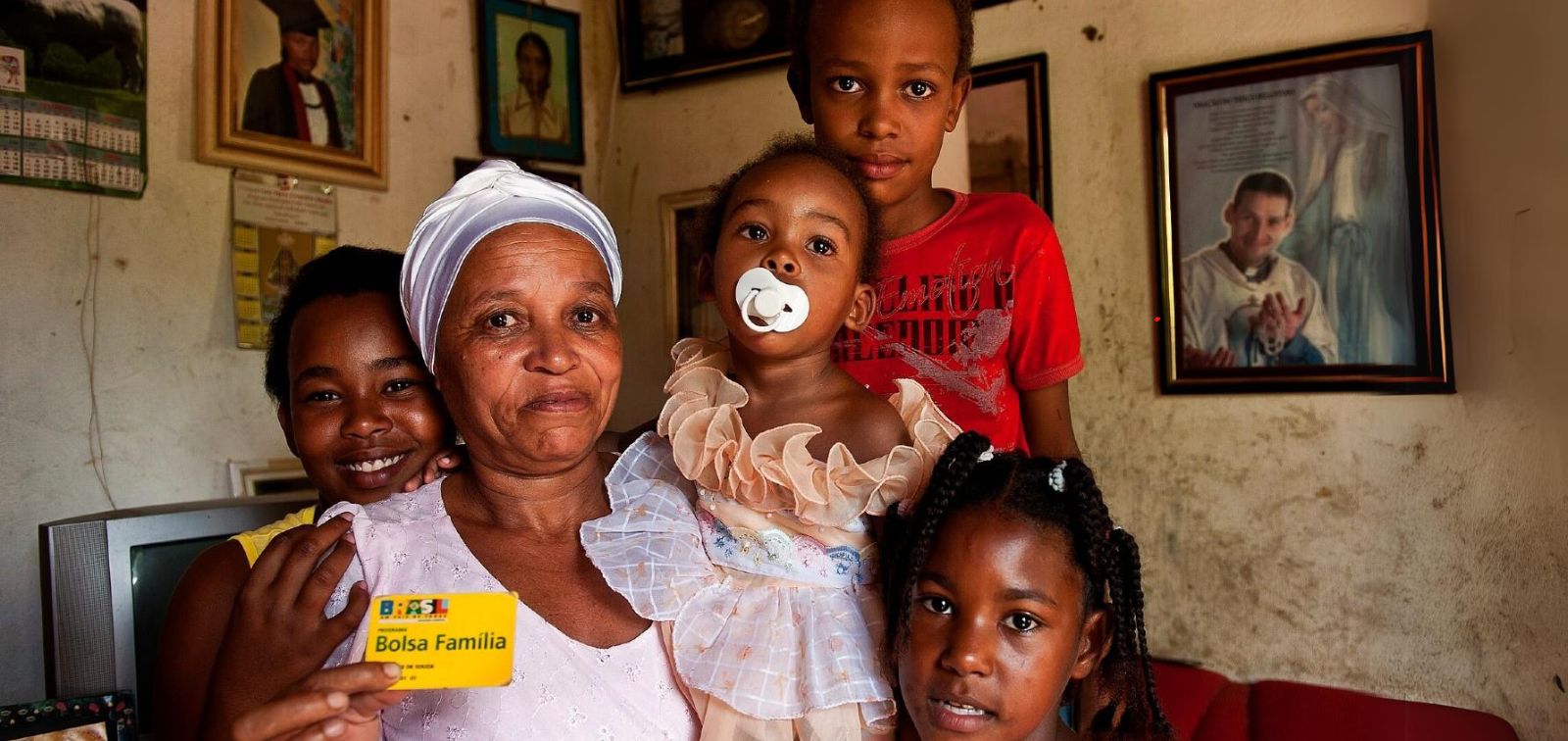Conditional Cash Transfers Significantly Reduce HIV/AIDS Cases and Deaths in Highly Vulnerable Populations
New study using data from more than 22 million beneficiaries of the Programa Bolsa Familia in Brazil shows that the effect is concentrated among the very poor, women and adolescents
21.02.2024
The Brazilian cash transfer programme has reduced by more than half the number of new cases and deaths from HIV/AIDS among the very poor, according to a large cohort study coordinated by the Barcelona Institute for Global Health (ISGlobal), a centre supported by “la Caixa” Foundation, in collaboration with the Institute of Collective Health of the Federal University of Bahia, Brazil. The results, published in Nature Communications, show that these programmes are essential for reaching the AIDS-related targets by 2030.
Living with very little money puts people at greater risk of contracting many different diseases, including HIV/AIDS, a pandemic that has caused more than 30 million deaths worldwide. Poverty not only increases the risk of contracting HIV, it also makes it harder to get appropriate and timely care.
But fighting diseases like HIV/AIDS is not just about health care. It’s also about improving the conditions in which people live (the social determinants of health). One way to help families with low incomes is through programmes that give them money if they meet certain conditions, such as making sure their children go to school and get medical check-ups. These programmes have been used in many low- and middle-income countries (LMICs) and have helped improve health in many ways. One of the world’s largest such programmes is the Programa Bolsa Família (PBF), which was launched in Brazil two decades ago.
“Conditional cash transfer (CCT) programmes are among the most effective and widely used interventions to address the social determinants of health, but the magnitude of its impact on HIV/AIDS was not clear,” says Davide Rasella, ISGlobal researcher and study coordinator.
In this study, Rasella and colleagues looked at data from more than 22 million PBF beneficiaries over 9 years (between 2007 and 2015) to find out.
Effect according to income, sex and age
The results of the analysis show a strong effect of the PBF on all disease-related outcomes. But this effect depended on the baseline income of the beneficiaries. Among people with extremely low income, the number of new AIDS cases and deaths was reduced by more than half (55% and 54% respectively), and the case-fatality rate of the disease was also reduced (by 37%). The programme had almost no effect on people with higher incomes.
The impact was also stronger in women and adolescents, showing that this programme helps to reduce inequalities based not only on income but also on sex and age.
Conditional cash transfers can help prevent HIV/AIDS through several mechanisms. For example, by reducing the likelihood that women will resort to sex to meet basic needs, or by providing access to health education and information, or by reducing malnutrition and other co-morbidities that exacerbate the disease.
“This is the largest evaluation of the impact of CCTs on an infectious disease, in particular on HIV/AIDS,” says Andréa F. da Silva, researcher at the Institute of Collective Health of the Federal University of Bahia, and first author of the study.
As Rasella points out, these are “very strong results.” They show that CCTs significantly reduce AIDS cases and deaths in extremely vulnerable populations and should be considered an essential intervention to achieve the AIDS-related Sustainable Development Goals by 2030.
Reference
Silva, A.F., Dourado, I., Lua, I. et al. Los ingresos determinan el impacto de las transferencias de efectivo sobre el VIH/SIDA: estudio de cohortes de 22,7 millones de brasileños. Nat Commun 15, 1307 (2024). https://doi.org/10.1038/s41467-024-44975-z





